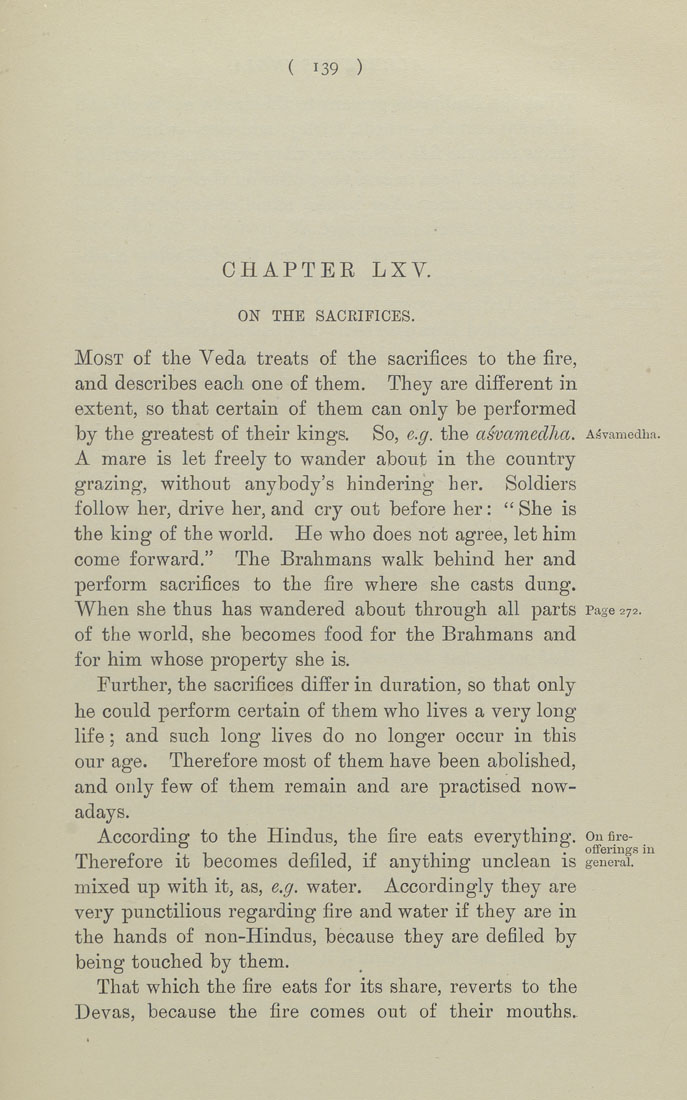Bīrūnī, Muḥammad ibn Aḥmad, Alberuni's India (v. 2)
(London : Kegan Paul, Trench, Trübner & Co., 1910.)
|
||
|
|
|
|
| Page 139 |

( 139 ) CHAPTER LXV. ON THE SACRIFICES. Most of the Veda treats of the sacrifices to the fire, and describes each one of them. They are different in extent, so that certain of them can only be performed by the greatest of their kings. So, e.g. the asvamedha. Asvamedha. A mare is let freely to wander about in the country grazing, without anybody's hindering her. Soldiers follow her, drive her, and cry out before her: " She is the king of the world. He who does not agree, let him come forward." The Brahmans walk behind her and perform sacrifices to the fire where she casts dung. When she thus has wandered about through all parts Page 272. of the world, she becomes food for the Brahmans and for him whose property she is. Further, the sacrifices differ in duration, so that only he could perform certain of them who lives a very long life; and such long lives do no longer occur in this our age. Therefore most of them have been abolished, and only few of them remain and are practised now¬ adays. According to the Hindus, the fire eats everything. Onfire- , ... offerings in Therefore it becomes defiled, if anything unclean is general. mixed up with it, as, e.g. water. Accordingly they are very punctilious regarding fire and water if they are in the hands of non-Hindus, because they are dehled by being touched by them. That which the fire eats for its share, reverts to the Devas, because the fire comes out of their mouths. |
| Page 139 |







